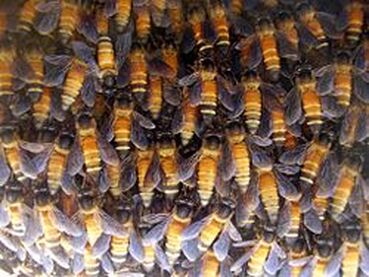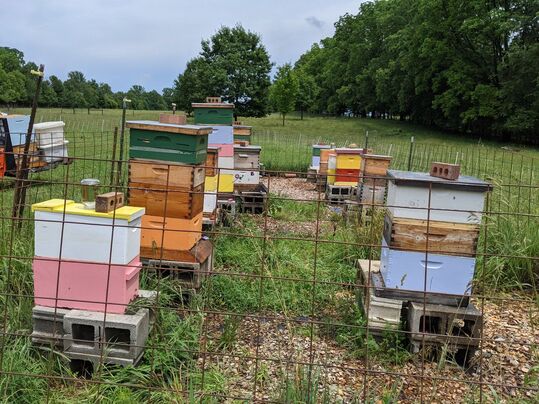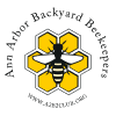 Giant Honey Bees Giant Honey Bees Apis There are between 7 and 11 different species of honey bees. For example, Apis cerana, the Eastern or Asian honey bee is the original host for the Varroa mite, but is not found in North America. Apis dorsata, the giant honey bee, is also only found in South and Southeast Asia. Apis koschevnikovi inhabits Malaysian and Indonesian Borneo. Again, there are no native honey bees in North America, but the colonists brought over Apis mellifera, Western honey bees, and they have been present in North America ever since. Breeds Within the species Apis mellifera, there are 26 recognized subspecies. The most widely known subspecies is Apis mellifera scutellata, better known as the “Africanized” honey bee. Other common European subspecies of Apis mellifera include: Apis mellifera ligustica (Italian honey bee), A. mellifera carnica (Carniolan honey bee), A. m. mellifera (German black bee), A. m. caucasia (Caucasian honey bee), and A. m. artemisia (Russian honey bee). Characteristics Many bees in North America have become hybrids of these subspecies, so bees not obtained from a certified breeder will probably have mixed genetics from more than one of these subspecies. Generally, overwintered MI bees are considered “Michigan mutts.” However, some beekeepers choose to start with or maintain more pure lines of bees or hybrid bees that are a cross between certain subspecies based on the traits of those subspecies. For example, many people prefer Italians because of their calm temperament and increased honey production. Others prefer Russian bees for their reported Varroa mite resistance. Most beekeepers in the U.S. try to avoid keeping bees with Apis mellifera scutellata genetics because they tend to be super defensive bordering on aggressive, sting more frequently, swarm more often, and produce little honey. However, they are routinely kept by African beekeepers. More Information: https://bee-health.extension.org/subspecies-the-place-of-honey-bees-in-the-world/
0 Comments
Leave a Reply. |
AuthorJen Haeger is a new master beekeeper and board member of A2B2. Archives
August 2022
Categories
All
|


 RSS Feed
RSS Feed
